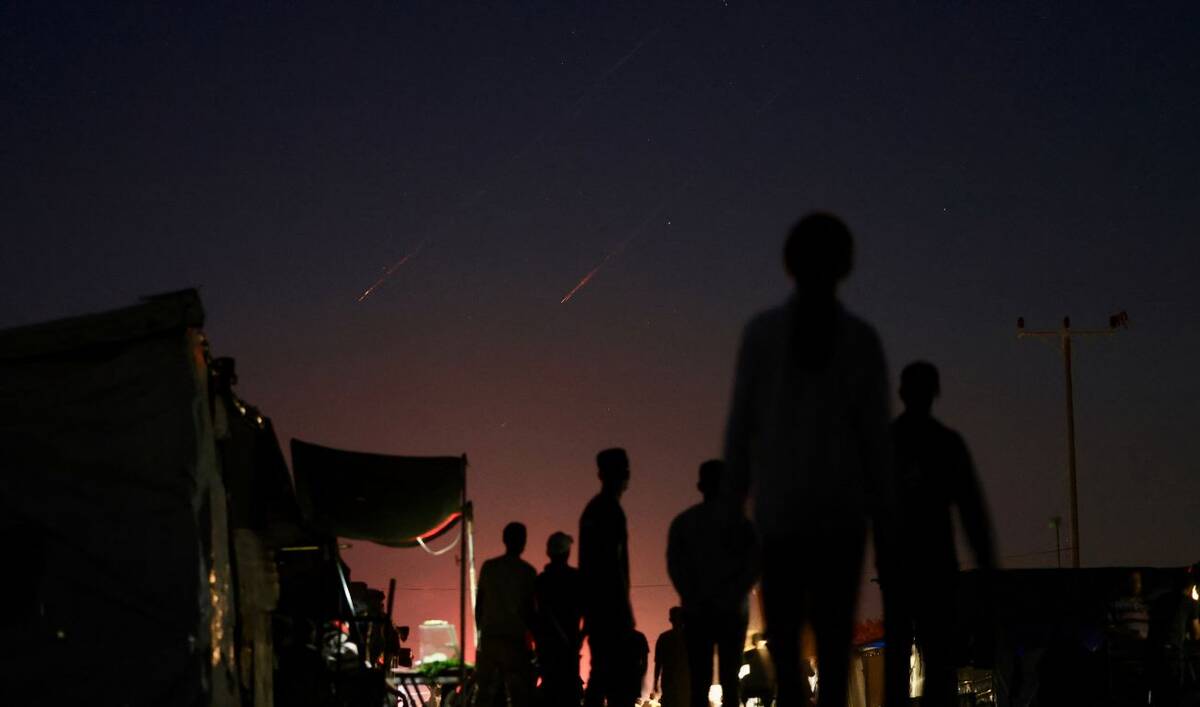PESHAWAR: Three Pakistani civilians were wounded in an exchange of gunfire between Pakistani and Afghan forces at the Torkham border crossing, a police official said on Monday, amid an ongoing dispute between the two sides over construction work along the border that has kept the vital crossing shut for nearly two weeks.
Torkham serves as a vital corridor for transporting goods from Pakistan to Afghanistan and Central Asian countries. Pakistan closed the border crossing in its northwestern Khyber district on Feb. 21 when Afghan authorities initiated âconstruction of trenches and other development workâ along the border.
The tense situation escalated into a skirmish between the two border forces at Torkham in the wee hours of Monday, according to Naheed Khan, a senior police official in the Khyber district of Pakistanâs Khyber Pakhtunkhwa (KP) province that connects with Afghanistan.
âBoth border forces traded fire last night at around 1:00am, using small and heavy weapons, which left three civilians injured. Some vehicles were damaged on the Pakistani side,â Khan told Arab News.
âMost of the families living near the border area have left toward Landikotal, a town close to the Torkham, to avoid casualties.â
Pakistani and Afghan officials have held at least two rounds of talks at Torkham, but negotiations between the two sides have failed to yield any results.
The busy crossing currently wears a deserted look and thousands of trucks and vehicles carrying goods, including fruits and vegetables, have been stranded on both sides since the closure of the border, according to Asghar Ali, a Pakistani custom clearing agent, told Arab News.
âPeople living on both sides of the border, businessmen, passengers and truckers are greatly discouraged due to frequent closure and reopening of this border. We have no expectations from Pakistani and Afghan officials to settle their issues amicably,â Ali said.
âThey are living in constant enmity, which has no room in todayâs world. Let the people do their business and feed their families.â
Kiftan Bacha, an Afghan custom clearing agent, said the closure of border has greatly troubled travelers, specifically patients, while several truckloads of perishable items have been wasted.
âMost of the passengers and trucks even went back to Kabul after waiting for days and even a week for reopening of the border,â he added.
In the past, border clashes between Pakistani and Afghan forces have led to the closure of key crossings like Torkham and Chaman, severely disrupting trade and halting the movement of people between the two countries.
On Sunday, Afghan consul-general in Peshawar Mohibullah Shakir met KP Chief Minister Ali Amin Gandapur to discuss bilateral trade, regional peace and security, and issues faced by Afghan nationals residing in the northwestern Pakistani province, according to KP CMâs office.
âDiscussion took place at the meeting on the difficulties faced by traders and common people on both sides due to the closure of the Pak-Afghan border at Torkham,â Gandapur said in a statement.
â[Both figures] agreed on efforts to open the border as soon as possible in view of the month of Ramadan and the upcoming Eid Al-Fitr.â
The development comes at a time of strained ties between Pakistan and Afghanistan over a surge in militant attacks in Pakistanâs western provinces that border Afghanistan.
Islamabad has frequently accused Afghanistan of sheltering and supporting militant groups that launch cross-border attacks. Afghan officials deny involvement and insist that Pakistanâs security issues are an internal matter of Islamabad.
âThe closure of the border is not in the interest of the people on both sides, it is causing difficulties to the business people as well as the common people,â CM Gandapur was quoted as saying by his office.
âThere is a need to open the border as soon as possible in view of the difficulties faced by the people.â
Gandapurâs statement came hours after the KP administration urged Pakistani federal authorities to approve the Terms of Reference (ToRs) for its talks with Afghanistan on surging militancy âas soon as possible.â
The KP government said in February that it had decided to send two delegations, comprising tribal elders, religious scholars, and political leaders, to Kabul to engage in direct talks with the Afghan Taliban rulers for peace and stability in the province.
It followed a statement by KP Chief Minister Ali Amin Gandapur, in which he said the security situation in the region was directly linked to âdevelopments in neighboring Afghanistan,â following a consultative meeting of various religious and political parties in the province.
However, Pakistanâs foreign office said it was not informed of KPâs decision to engage in talks with Kabul, adding that external ties with another country fell under the federal governmentâs jurisdiction.
Three Pakistani civilians injured as Afghan, Pakistani forces trade fire at Torkham border crossing
https://arab.news/nj7pp
Three Pakistani civilians injured as Afghan, Pakistani forces trade fire at Torkham border crossing

- The Torkham border crossing has been shut for 11 days due to Pakistan disputing Afghanistanâs construction work along border
- The key crossing serves as a vital corridor for transporting goods from Pakistan to Afghanistan and Central Asian countries


















